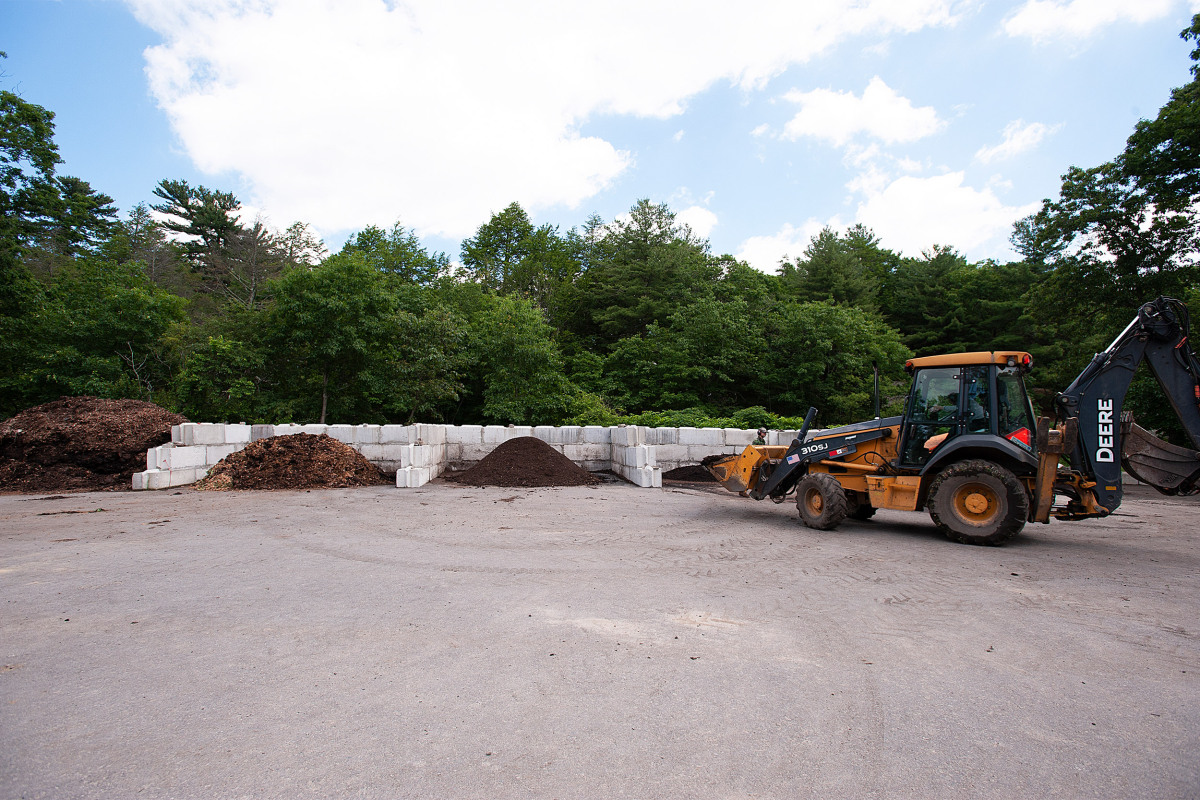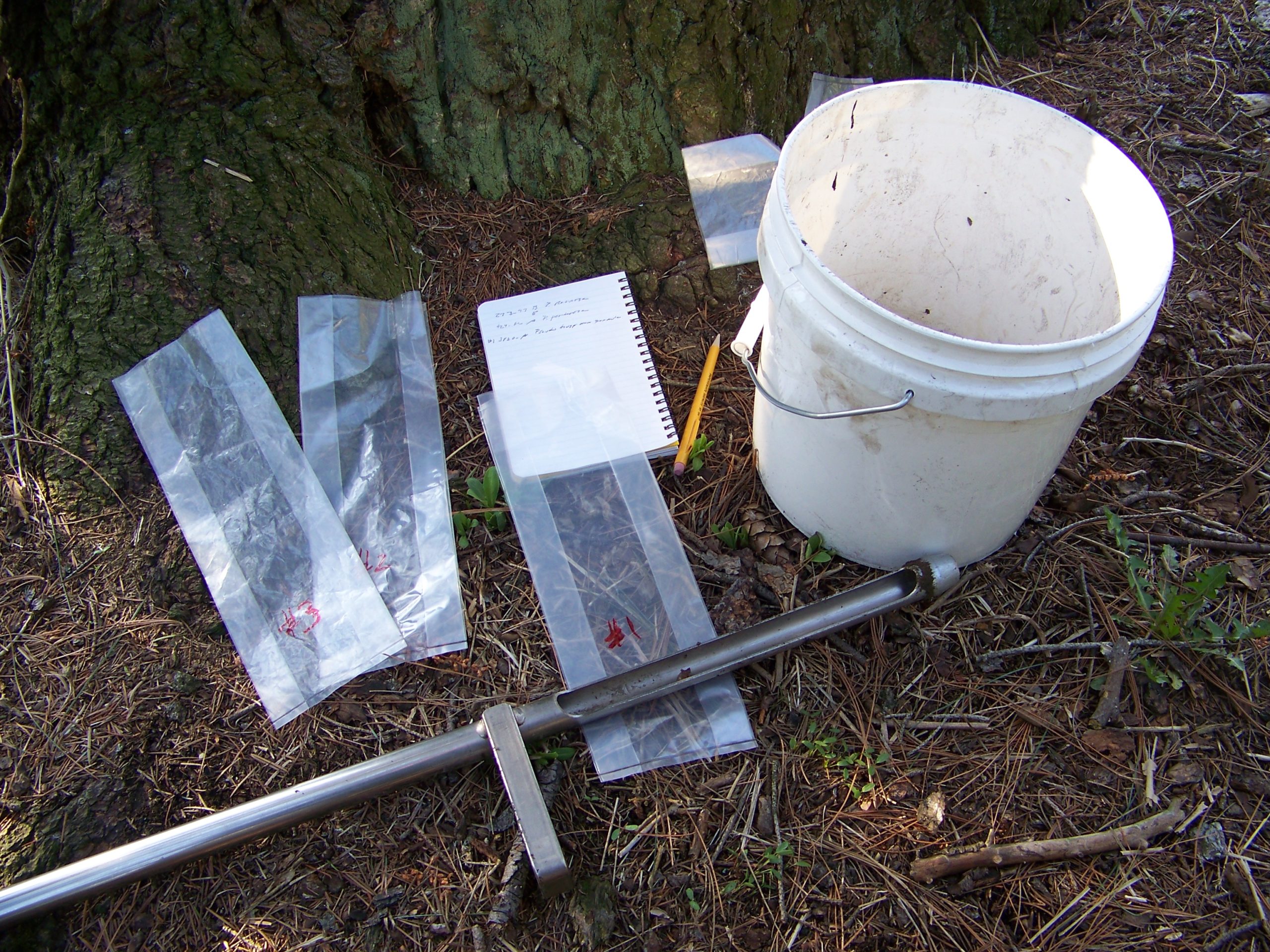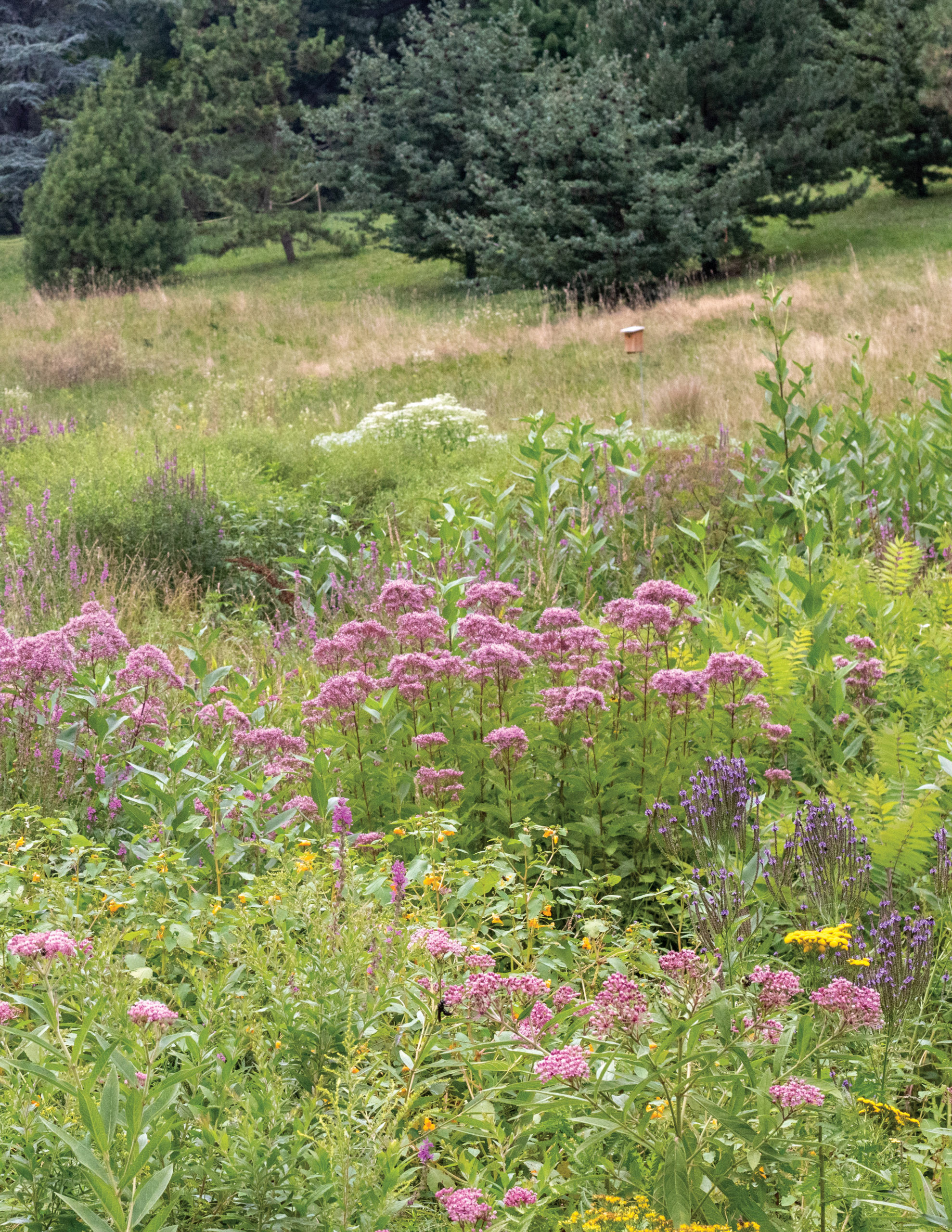Plant health care begins with soil. The chemistry of the soil, including the pH and nutrient levels, as well as the microbial composition and the extent of soil compaction all contribute to the health of soils and their ability to sustain plant life. Urban soils typically have higher pH levels, poor nutrient cycling, poor microbial diversity, and high levels of compaction. In compacted soil, plants struggle to grow extensive root systems and to retain water and nutrients efficiently. Prior to the establishment of the Arnold Arboretum in 1872, centuries of agricultural tillage led to compacted soil. In the last century and a half, the impact of millions of visitors and decades of heavy machinery use for landscape maintenance has contributed to heavily compacted soil.
At the Arboretum, we regularly test soils to understand their condition and needs, and take measures to improve soil quality based on these evaluations. We recently upgraded our composting system, allowing us to efficiently recycle organic byproducts of our horticultural operations. Expanded mulched pathways, low-mow areas, and careful use of equipment help us prevent further soil compaction. Across the Arboretum, our healthy soils initiatives form the foundation for holistic, sustainable plant care practices.
Composting program
To address the health of our soils and revamp our operations for composting green waste, we formed a Soils Advisory Committee in 2016—comprised of soil science experts from neighboring public gardens and universities— and formed partnerships with the US Forest Service and the American Public Gardens Association.
These endeavors led to an investment in a new composting program and a complete overhaul of our materials recycling facility. To augment the organic byproducts of our horticultural operations, we receive spent coffee grounds from Recreo Coffee to provide our compost with nitrogen-rich inputs that would otherwise end up in landfills.
Compost produced at the Arboretum serves as a soil amendment across our landscape. This nitrogen- and carbon-rich material aerates the soil, reduces soil compaction, increases water retention and nutrient cycling, balances pH, and improves microbial diversity. Overall, our compost creates healthier soil to help our plants thrive.


Related Projects




